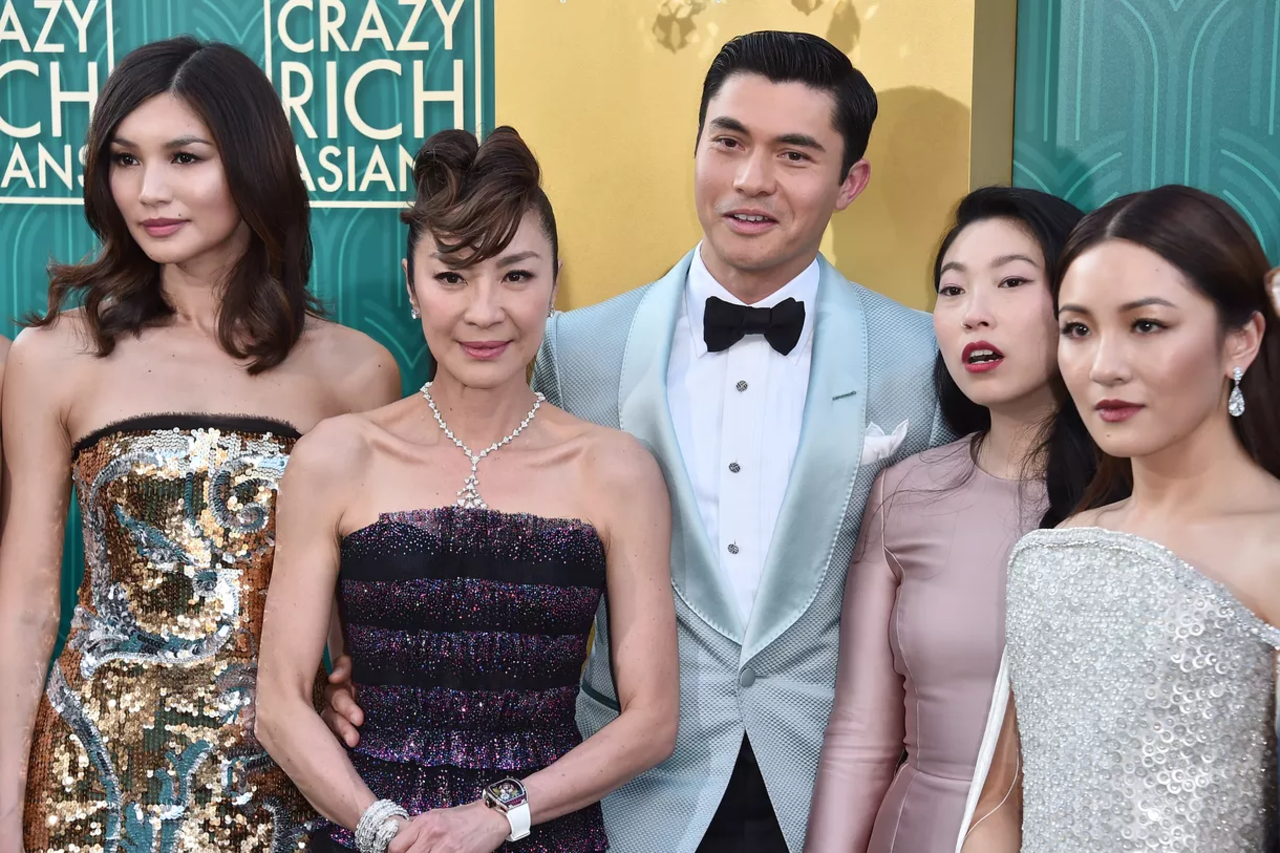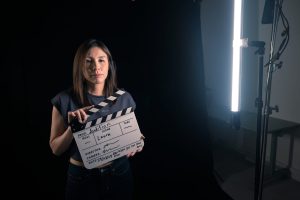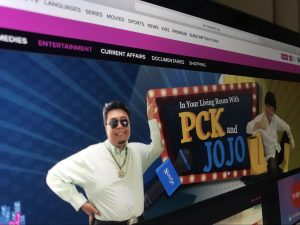Top image credit: Getty Images
It couldn’t sound more like a film if you tried: fresh-faced NUS grad moves to the US for music school, ends up in Los Angeles, becomes the personal assistant to the head of an artist management agency, hustles her butt off, and finds herself in 2019 with Paris Hilton leaving “Love you <3” comments on her Instagram.
Except that none of this is fictional.
Charlotte Yap, Senior Vice President at East West Ventures (formerly known as East West Artists), has worked in Hollywood for the last 6 years, doing celebrity management and brand consulting for a living—a world away, literally and figuratively, from her childhood in Singapore. Over an hour-long call, we chatted about how she landed her job, what life behind the glitz and glamour looks like, and the feats she’s had to pull off in the name of work.
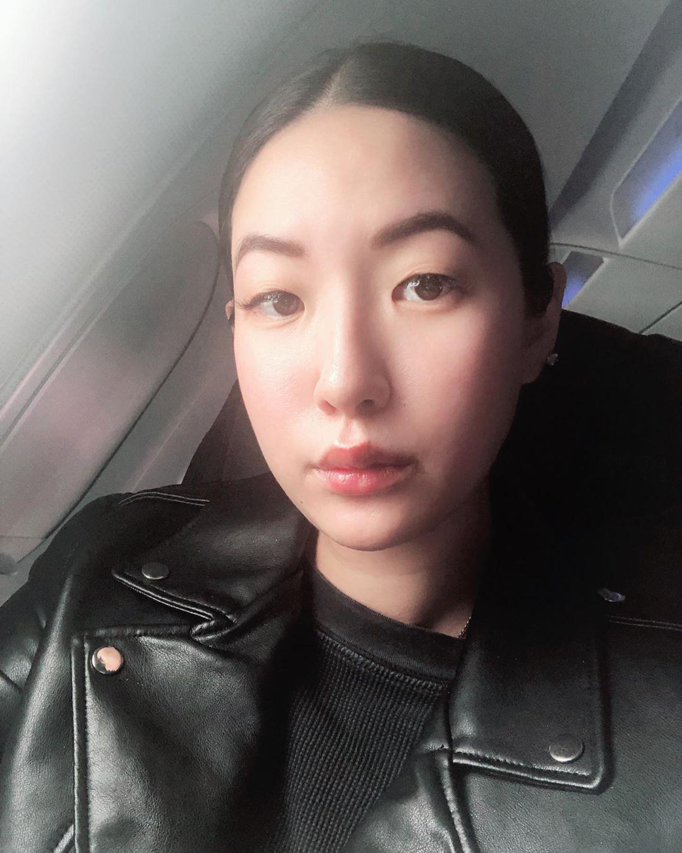
I was born and raised in Singapore, and graduated from NUS with a degree in Political Science in 2011. Up to that point, I’d always done the Singaporean thing, but I wasn’t really satisfied with what I was doing at the time, and I wasn’t really interested in any of the kinds of jobs my friends were getting. However, I’ve been playing the cello since I was 8, and so I decided to audition for the Berklee College of Music in Boston. I got in, moved to the US, and graduated from Berklee in 2013 with a degree in Cello Performance and Professional Music.
After graduating I moved to LA, but I wasn’t really sure what I was going to do. I thought I’d give myself a year and see if I find something great, and if not I’d go back to Singapore.
Around that time, one of the friends I’d made in Berklee was working for a media exec, Jaeson Ma, who’d just started a company called East West Artists. What they did was basically bridge Eastern media and Western media. She was about to leave to go on tour, and she said her boss was looking for a personal assistant, would I be interested in applying for the position? I was like yeah, why not. I have nothing to lose and nothing better to do.
I had zero idea about what I’d signed up for. I went into it not knowing anything about how the entertainment industry works, I didn’t know what to expect, but I said I’m gonna give it a shot. I think it was a 3 to 6 month internship, and I just dived in at the deep end.
So what were the first few weeks like, given that you knew absolutely nothing when you started? What did you do?
I started off doing a lot of scheduling and learning the ropes of how everything gets done in Hollywood.
There are a lot of different hierarchies in Hollywood, even in terms of scheduling and setting up meetings—there’s a certain way in which people here do all this stuff. I had to learn how to read scripts, watch a lot of TV and films, read a lot of pilots, do research on celebrities and trends in the entertainment industry … basically, I just had to learn everything about the entertainment industry and how it works on a day-to-day basis.
I had to learn the language of Hollywood, like when you’re emailing someone—what can you say? What can’t you say? When you’re trying to pitch a client for a TV show, what should you do? What can’t you do? What would someone at another agency, like CAA or UTA, do?
Yeah. I think lots of industries have a culture and language all of their own, which you have to learn in order to navigate. Can you break this down for me?
In Hollywood, it’s about who you know. This applies to everything, whether celebrities trying to get a role in a film or an assistant trying to set up a meeting for your boss.
Essentially, I had to figure out what the hierarchy was in all these companies. Say for instance a studio like Warner Bros, I would go find out who’s the CEO, who’s the Head of Production, who’s the Head of Distribution, who’s the Head of Sales … and figure out what the structure was. So if my boss came to me and was like, can you help me set up a meeting with this studio because I wanna pitch them a client, I would have to figure out who the person I needed to get to was, then figure out how to get to that person’s assistant.
There’s like an underlying assistant network in Hollywood where everyone knows each other. You meet each other through dinners, get-togethers, events, and you quickly come to realise the industry is not that big, and everyone that you need to know is everyone you need to know. It’s like an ecosystem.
I’ll explain it in this way: if you go the traditional route, say an agency like WME or CAA or a studio, you start at the very bottom. That’s the mail room. You basically sort and deliver mail to people. That’s where you start and work your way up, and it takes years. So people go all the way from mail room, to reception, to 3rd assistant, 2nd assistant, 1st assistant …
This is the craziest career ladder I’ve ever heard of.
Yup. You basically have to climb the ranks. A lot of people who want to bypass this, or try to bypass this, do so by getting a PA job to someone who is someone.
Insofar as there is one, what’s the average background of a PA?
I think typically, lots of people in this industry are American. A lot of them graduate from UCLA or USC [the University of California-Los Angeles or the University of Southern California] or film school.
Right. I imagine people from such backgrounds would already have some of the connections you need to thrive in this job, but having grown up on the other side of the world, you didn’t have any of that. So how did you know where to start? How do you even find the first name you needed?
I think I was just really lucky. One thing was that my boss mentored me well, although I still had to think on my feet and learn on the fly. And two, being able to speak Chinese, coming from Singapore where it’s very multi-cultural and multi-lingual, gave me a huge advantage.
When I entered the industry, a lot of big companies were starting to hire Chinese-speaking assistants and execs because everyone was trying to break into the Chinese market. I started out basically making friends with every single Chinese-speaking assistant there was in Hollywood. A lot of them weren’t American as well, and I guess we had that in common. But we had an advantage because of our language skills, and we were able to research and pick up the kind of knowledge into Asia and SEA that all these people in Hollywood wanted.
It all snowballed from me meeting one assistant who was Chinese. He brought me to meet these other friends of his, who were also all assistants, and we kind of formed this Chinese assistants network where we would just trade information, hang out, have dinner. There was this familiarity there because we all weren’t American per se, but that was a really good start for us.
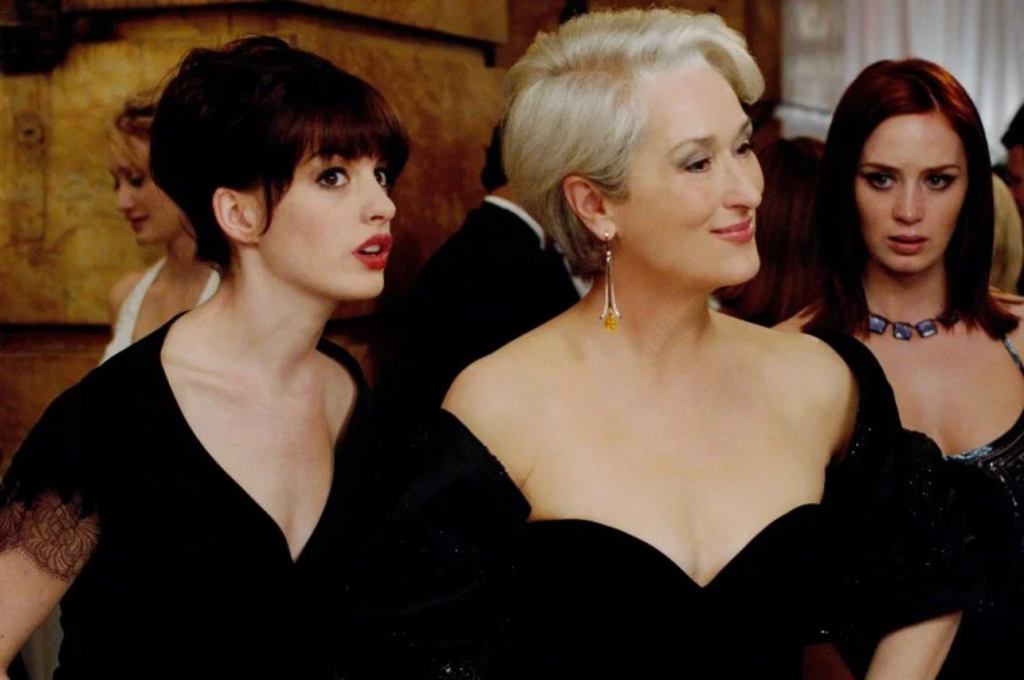
I have to ask: is it actually as intense as The Devil Wears Prada? I’m not asking if your boss was like Miranda Priestly, but the world of celebrity PA-ship is generally portrayed as this all-consuming thing where you have to make insane sacrifices, pull off all these crazy feats …
I guess people like to dramatise the entertainment industry because it’s interesting and exciting, celebrities and all that. But just based on what the industry’s like, it’s just always going. It’s 24/7. And the fact that we work with Asia and SEA just makes it even more 24-hour.
I enjoy my job, but each celebrity is like a company in and of themselves, and so you’re basically helping someone run a company. And to manage a company, you have to do all these things, regardless of whether it’s in your job scope or you like to/want to do it.
Are there any stories you can tell me?
One of my clients left his phone in the business lounge of the airport in this Japanese ski town. He called me in LA, and he was basically supposed to get on a flight from this ski town to Tokyo and then from Tokyo to the US. He was like, Charlotte, I left my phone behind! And this was just when his plane was about to take off for Tokyo.
I actually managed to call the airport and get his phone flown from there to Tokyo to arrive there before him, at his gate, for him to pick up before he boarded his flight to the US.
How on earth did you pull that off?
I have no idea. But it worked. I made it work.
Things like that just happen. They ask you: can you make it work? Can you make it happen? And you just say yes. Then you get it done. I might not know how just yet but I’ll figure it out.
Haha. But it sounds like it can be hard for you to have time for yourself outside work.
I think at the end of the day, I do set my own boundaries and personal time. And I do try to respect my clients’ time; that’s also something I’ve learnt over the years. I don’t chase hype or fame, and I don’t like being in the spotlight. I’ve been in this industry for 6 years and this is the first interview I’ve ever done, because I don’t really like people knowing who I am. I just want to stay in the background and get stuff done.
It strikes me that the people do what you do, behind the scenes, and do well at it, are probably the exact opposite of what we on the outside think Hollywood is all about.
I’ve seen a lot of people who have a lot of misconceptions about what this job is. I think a lot of younger people come into this very bright-eyed, and they’re like, yes, I wanna be a personal assistant to a celebrity! But I’m like, you have to go through the process, put in the work, pay your dues. That’s what we always say: you have to pay your dues. I did it for 3, 4 years, I hustled, I worked really hard. And I always tell my staff – just put in the work, and you’ll get there.
How has this job changed how you think about fame or the entertainment industry?
At the end of the day, celebrities are all human. Maybe because I grew up in Singapore, I never felt celebrities were this huge deal … I guess because I now get to see them day-to-day, I see the vulnerability, the good times, the bad times. They have emotions, they get tired, they get burnt out. I think sometimes people forget that, especially when it comes to meeting fans. Asian celebrities, especially, get bombarded by fans everywhere we go. We have people following us everywhere, even at the airport.
I think people expect celebrities to be on 24/7, but that’s just not possible. For a lot of them, it’s also a job, and they need someone in their life to tell them the truth and be there for them without sugarcoating things. As their PA, you need to have a certain level of discretion and emotional sensibility, especially being able to tell someone the truth but doing it in a way that’s encouraging. When you work for people who are in the public spotlight, you’re not just taking care of them professionally, you’re taking care of them personally too.
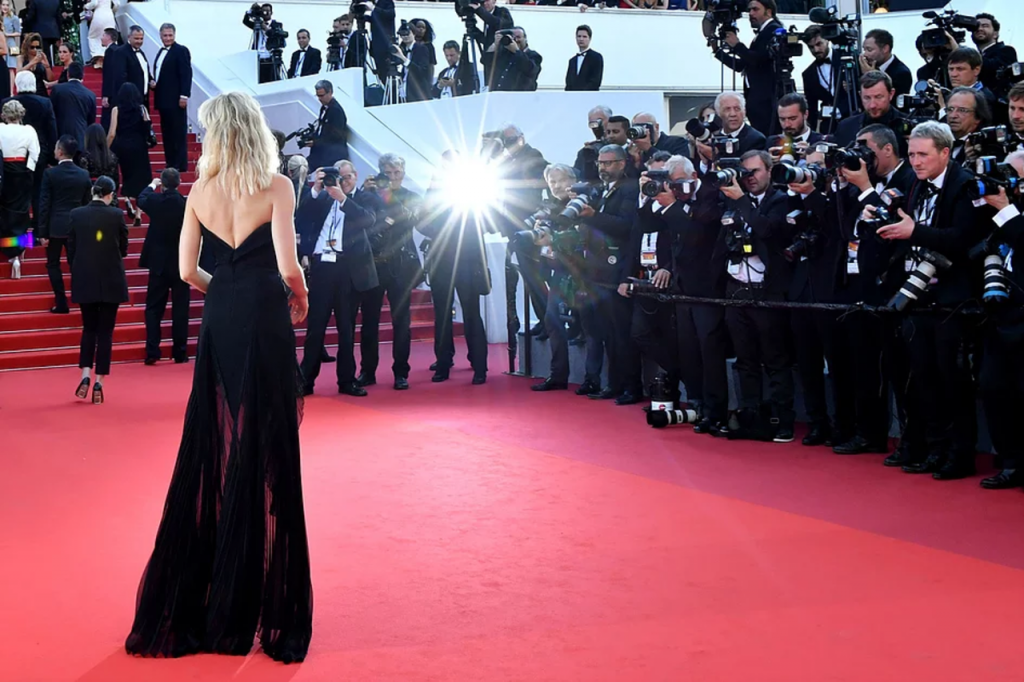
Have you ever felt uncomfortable with how much you get to see into your clients’ lives?
I’m quite an honest and upfront person, but sometimes I will ask my clients: Do you actually want me to stay here and listen to this conversation with you? Do you want some personal time? Do you need me here? I give them the option to tell me what they want. If they want to confide in me, I’m all ears, but I will close the door on that conversation once it’s done.
I think I don’t really have an issue with this, because I do try to assert that boundary. I always tell my staff this: Never, ever get too comfortable with your job. Whether it’s with your job or a person you’re working with, never get too comfortable, because at the end of the day, it’s a professional relationship. You guys can be friends, but always be mindful that that person also needs boundaries and space.
On that note, do you manage to get some space from your job, say on visits home? How do those feel, given how removed your life in LA is from things here?
I try to come back once a year, though sometimes that can be hard when there’s a lot to do. Singapore will always be home for me. I’m the only one here, and although I recently got married, all my friends and family are in Singapore. When you go back after being away for a long time, you realise everyone back home has their own routine, and that doesn’t always involve you.
I spent the first 22 years of my life in Singapore, so I will always have deep roots there. But at the end of the day, my job is here in LA. My life is here. A huge part of my life and education all took place in Singapore, but I really only grew into the woman I am today in the US.
How do your parents feel about your job?
My parents are super proud of me. I mean, I think my dad maybe wishes I had a government job in Singapore. He just wants that stability for me … I mean, he’s like, Hollywood? Why Hollywood? You know? But at the end of the day, they’re proud of me.
My friends are always excited. They’re like, can I meet this person? Can I meet that person? And I’m like, No!
Just out of curiosity: have you ever met another Singaporean who wants to be a celebrity PA?
Haha, nope. But I’ve definitely met lots of Singaporeans who want to be celebrities!
This interview was lightly edited and condensed for clarity.
Have you pulled off crazier feats in the name of work than tracking down a lost phone from halfway across the world? Tell us about it at community@ricemedia.co.

